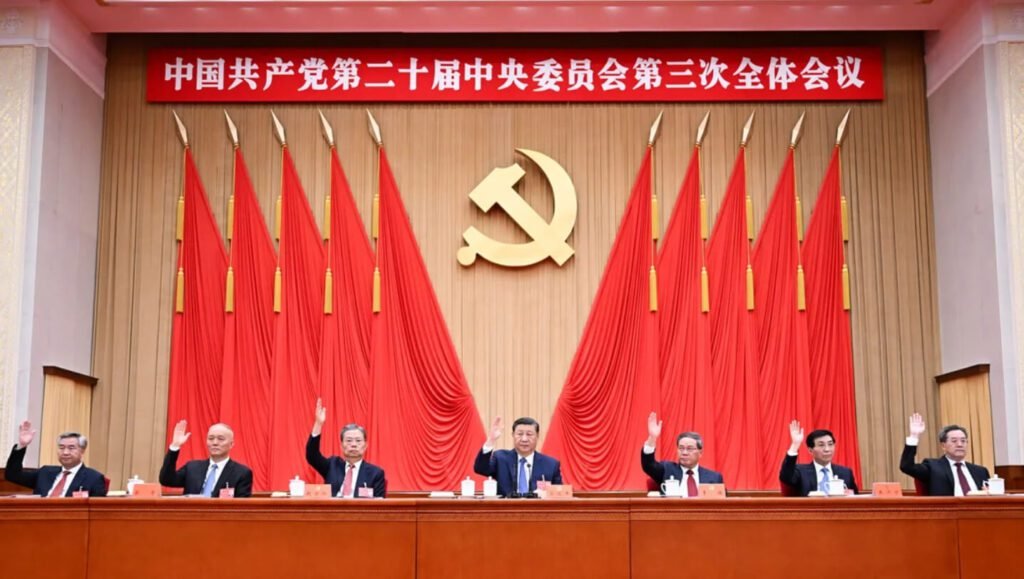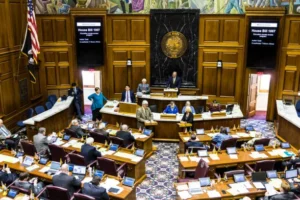China is facing mounting economic jams, and there’s a pressing demand on the government in Beijing to live up to the policy promises they made at a significant leadership gathering. However, achieving noticeable progress has been a struggle in the recent past.
The country is dealing with deflation and weak domestic demand, not to mention the increasing global pushback against its predominantly export-driven economy. Faced with these challenges, the leadership decided to stick with the status quo at the recent plenum, rather than making any new policy shifts.
Despite unexpected rate cuts by the central bank, Chinese stock markets dived on Monday. The plenum, an important political meeting, fell short of offering definite reforms, said Alicia Garcia Herrero, a leading economist for Asia Pacific at Natixis. It appears Beijing is opting to stick to familiar strategies while navigating a growing set of domestic and international issues.
Economists had hoped for advances in improving the business environment, enhancing market roles in resource allocation, and increasing tax revenues, but there’s skepticism that these changes will ever happen.
The 2024 plenum agenda largely mirrored the 2013 plan, which initially boosted confidence in China’s future and portrayed President Xi Jinping as a reformer. However, since then, China has moved away from market liberalization, tightening capital controls after the 2015 stock market turmoil and cracking down on various industries.
China’s promises to boost domestic demand, reform the internal passport system, strengthen rural land rights, and enhance social security are also from at least 2013. This repetition, combined with the loss of credibility, means Beijing needs to act quickly to revive business and consumer confidence.
The plenum set a 2029 deadline for policy goals, a rare specificity for such events, but this didn’t reassure investors. Zong Liang from the Bank of China noted that reversing course isn’t easy and warned that a challenging external environment, such as a potential Trump presidency, could undermine reform efforts.
The new agenda emphasizes “new productive forces,” a concept introduced by Xi last year, focusing on high-tech industries to drive growth. This shift is concerning for global stakeholders who worry about overcapacity and its impact on global manufacturing jobs. Many economists argue that China should pivot to a consumer-driven model for sustainable growth.









